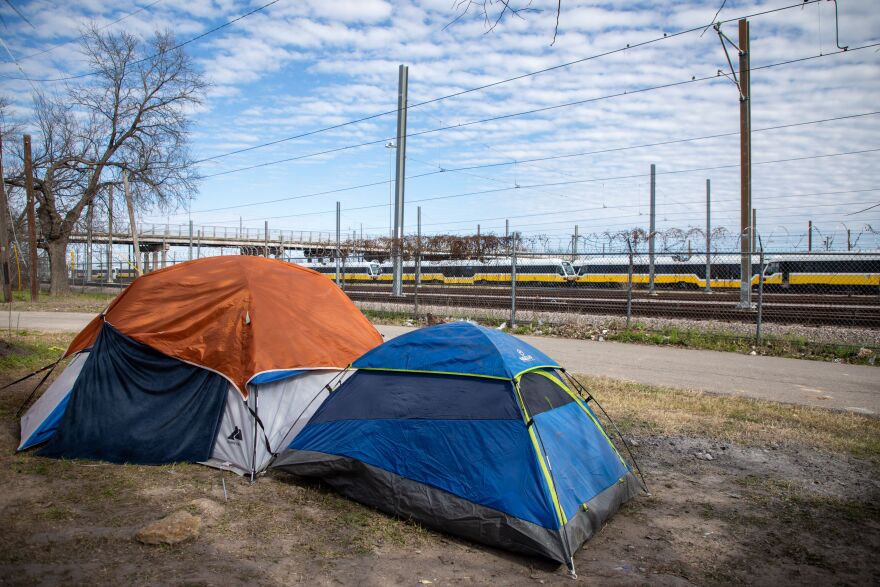As the city works on a bond package to present to voters in 2024, Christine Crossley, who heads the Dallas Office of Homeless Solutions, laid out a needs assessment to council members on the housing committee.
The preliminary bond package proposed by city staffers totals about $1 billion.
Crossley's $34 million ask would mostly pay for more permanent supportive housing, a model that provides rent assistance with wrap-around services so people don’t fall back into homelessness. About $5 million would go to renovations and upgrades to The Bridge Homeless Recovery Center and emergency shelter.
The package could also include $150 million in bonds to address the city's affordable housing shortage.
These numbers are very preliminary. Next month, the OHS proposal will go to a council subcommittee for discussion, and then several more procedural steps before the council votes on the entire 2024 bond package. Then, it'll be up to voters to approve next May.
Crossley said the city had historically focused too much on shelter space, and not enough on housing for those exiting homelessness. In the last couple years, the focus has shifted to providing the right mix of transitional and permanent housing as well as services to make sure people successfully leave homelessness.
“What we had for quite a while was a bottleneck of people in shelter because they didn’t have somewhere to go, which meant that more people couldn’t go into shelter,” Crossley said. “What we’ve done over the past year and a half is really eased that bottleneck by providing places for people to go.”
The ask comes as more federal funds and assistance are heading to the area to fight homelessness, and after unprecedented aid was handed down during the pandemic.
This year’s annual count of unhoused people showed a 4% reduction in homelessness across Dallas and Collin Counties, with about 4,200 individuals counted as homeless on the night of the survey.
While the count showed an increase in family and youth homelessness, it showed a much more significant reduction in long-term or frequent homelessness: From 2022 to 2023, there were 32% fewer people who were chronically homeless.
The city has about 680 units of permanent supportive housing either built or in development, paid for largely through $20 million in bond funds approved by voters in 2017. Crossley said it’s expensive to meet the complex needs of some people living on the streets.
“We have those who come into homelessness very briefly, but if you do not put significant resources into housing those that are chronic, you will never actually get to the heart of the problem,” she said.
Crossley said the city’s also seen great success in its rapid rehousing program, which moves people experiencing homelessness into apartments, covers their housing costs for a year, and provides services to help them become more self-sufficient.
Since 2021, Dallas has enrolled close to 3,000 people in the program, she said. The $72 million program is paid for mostly with one-time federal pandemic relief funds and is a joint effort of Dallas and other local governments, nonprofits and philanthropies.
Crossley said the city plans to expand the rapid rehousing program moving forward.
Got a tip? Christopher Connelly is KERA's One Crisis Away Reporter, exploring life on the financial edge. Email Christopher at cconnelly@kera.org.You can follow Christopher on Twitter @hithisischris.
KERA News is made possible through the generosity of our members. If you find this reporting valuable, consider making a tax-deductible gift today. Thank you.






